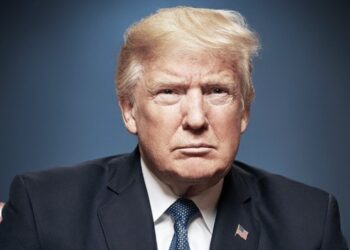The United States of America is often hailed as a beacon of democracy and a symbol of political stability. Yet, to the uninitiated, its political system can appear complex, contentious, and even contradictory. From the separation of powers to the rise of partisan polarization, understanding U.S. politics requires exploring its institutional architecture, its core philosophies, and the socio-cultural dynamics that drive political behavior.
Constitutional foundations and the philosophy of U.S. government
At the heart of American politics lies the United States Constitution, drafted in 1787 and ratified in 1789. Deeply influenced by Enlightenment thinkers such as John Locke and Montesquieu, the Constitution embeds a system based on popular sovereignty, limited government, federalism, and the rule of law.
- Popular sovereignty underscores the notion that legitimate political power flows from the people.
- Limited government insists that governmental power must be constrained through laws and checks.
- Federalism balances power between the national (federal) government and state governments.
- Separation of powers, with its accompanying checks and balances, divides authority among three co-equal branches to prevent tyranny.
These philosophical underpinnings provide the scaffolding upon which all subsequent political behavior is constructed.
The three branches of government
The U.S. government is made up of three branches.
- The executive branch: Headed by the President (who also serves as Commander-in-Chief and Head of State), the executive branch implements laws, negotiates treaties, manages foreign policy, and directs federal agencies. The presidency is limited to two four-year terms.
- The legislative branch (Congress): Congress is bicameral, consisting of the House of Representatives (435 members based on population, serving two-year terms) and the Senate (100 members, two from each state, serving six-year terms). Its primary duties include lawmaking, budgetary control, and oversight of the executive.
- The judicial branch: The Supreme Court and lower federal courts interpret laws and review the constitutionality of governmental actions under the doctrine of judicial review (established by Marbury v. Madison, 1803).
Each branch possesses unique powers and can limit the others. For example, the President can veto laws, Congress can override vetoes and impeach the President, and courts can strike down laws or executive actions.
Federalism: National vs. State authority
America’s federal structure divides power between Washington, D.C., and the 50 states. While the federal government handles foreign policy, defense, and interstate commerce, states control education, policing, election administration, and more. This decentralized system produces variation in laws – from taxation to abortion – across the country. Conflicts over the balance of power are a recurring theme: civil rights, gun control, marijuana legalization, and public health crises often spark debates over federal supremacy versus states’ rights.
The role of political parties
Two major parties dominate U.S. politics:
a. Democratic Party (Center-Left)
- Traces its origins to Thomas Jefferson’s Democratic-Republicans.
- Promotes government intervention in the economy, social welfare programs, workers’ rights, environmental protection, and inclusive social policies.
b. Republican Party (Center-Right)
- Founded in the 1850s on anti-slavery principles.
- Advocates for limited government, deregulation, lower taxes, strong national defense, and traditional social values.
While the U.S. Constitution does not mention political parties, they have become essential to organizing elections, mobilizing voters, and structuring political debate. Over time, partisan polarization has sharpened ideological divides, particularly since the late 20th century.
Elections and the electoral process
U.S. elections occur at the federal, state, and local levels with varying rules. Two key features are:
- Single-Member Districts: Members of Congress are elected from individual geographic districts.
- First-Past-the-Post Voting: The candidate with the most votes (not necessarily a majority) wins.
This system reinforces the dominance of two major parties and makes it difficult for third parties to gain traction.
a. Presidential elections
Presidential elections are particularly distinctive due to the Electoral College – a body of 538 electors who cast votes for President based on statewide results. Winning requires 270 electoral votes. This system means that candidates sometimes win the presidency despite losing the national popular vote, as occurred in 2000 and 2016.
b. Primary elections
Before general elections, parties choose their nominees through primaries or caucuses, a process in which party members vote for preferred candidates. These can be open (allowing independents to vote) or closed (limited to registered party members).
Money in politics
Campaigns are financed via private donations, Political Action Committees (PACs), and Super PACs. The 2010 Citizens United v. FEC decision allowed unlimited independent political spending by corporations and unions, arguing such spending is protected under the First Amendment. Critics argue that this gives wealthy individuals and organizations disproportionate influence over elections and public policy.
The role of media
The media – ranging from traditional newspapers to social media platforms – plays a pivotal role in informing, shaping, and sometimes polarizing political opinion. The rise of 24-hour news networks and algorithm-driven content has deepened partisan divides, as Americans increasingly curate news sources aligning with their beliefs.
Ideological and cultural divides
Contemporary U.S. politics is heavily influenced by identity, culture, and values. Key ideological factions include:
- Progressives: Advocating for systemic change, social justice, and environmental action.
- Moderates/centrists: Favor pragmatic solutions, often seeking bipartisan compromise.
- Conservatives: Emphasizing tradition, fiscal restraint, and national sovereignty.
- Libertarians: Prioritizing individual liberty and minimal government intervention.
Fault lines often appear over:
- Social issues: abortion, LGBTQ+ rights, race relations.
- Economic policy: taxation, healthcare, social security.
- Immigration and border security.
- Climate change and energy policy.
Contemporary challenges in U.S. politics
As the American political arena navigates the 21st century, it faces a series of mounting challenges that test the resilience, inclusivity, and effectiveness of its democratic institutions.
- Polarization and gridlock: Heightened partisan division in Congress has led to legislative stalemate and hindered bipartisan policy-making.
- Misinformation and trust deficits: Public trust in institutions and media has declined amidst concerns over misinformation, conspiracy theories, and “fake news.”
- Voting rights and election integrity: Disputes over voter ID laws, redistricting (gerrymandering), mail-in ballots, and claims of fraud have sparked fierce debates, especially following the 2020 election.
- Demographic shifts: Immigration, urbanization, and generational changes are altering the electorate, influencing party strategies and policy priorities.
- The rise of populism: Populist movements – on both the left and right – have challenged establishment politics, tapping into economic anxiety and anti-elite sentiment.
The future of U.S. politics
As American society continues to evolve, several trends are reshaping its political future:
- Growing youth engagement: Younger voters, more diverse and progressive, are influencing electoral outcomes.
- Technological change: Digital campaigning, cyber threats, and AI-driven manipulation are becoming central concerns.
- Policy priorities shifting: Issues like climate change, healthcare, and economic inequality are gaining prominence.
- Possible reforms: Discussions about abolishing the Electoral College, implementing ranked-choice voting, regulating campaign finance, and expanding the Supreme Court reflect growing interest in structural reforms.
Conclusion
Understanding U.S. politics requires an appreciation for its historical roots, institutional configurations, and sociopolitical currents. Built on a foundation of constitutional principles, democracy in America is simultaneously resilient and contentious. Its politics are shaped not only by laws and institutions but also by the values, interests, and identities of its diverse citizenry.
As the nation confronts 21st-century challenges – technological disruption, global competition, demographic change – the struggle to reconcile liberty with equality, unity with diversity, and stability with reform remains at the core of its political story. Whether viewed as a model to emulate or a cautionary tale, U.S. politics remains an essential subject of study for anyone seeking to understand power, democracy, and change in the modern world.


































































































































































































